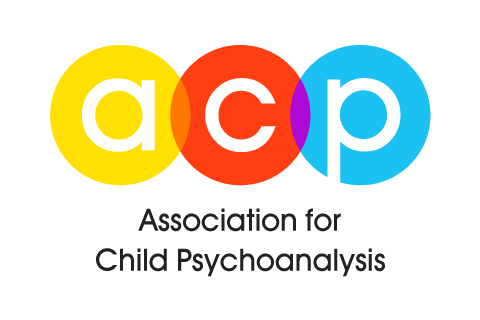Advancing skill and scholarship since 1969 |
Affiliations
The Institute has established relationships with a variety of organizations locally and nationally. Through their support and generosity our affiliates enable educational programming, support therapy and clinical services, broaden communications and outreach, and more.
The American Association for Psychoanalytic Education (AAPE) is an independent, non-profit, tax-exempt 501 (c) (3) organization of psychoanalytic institutes and training programs whose goal is to promote excellence in psychoanalytic education through establishing and promoting standards for psychoanalytic training. AAPE standards for the education and training of psychoanalysts follow the requirements of the tripartite Eitingon model. AAPE standards meet or exceed the requirements of the International Psychoanalytic Association (IPA). AAPE membership is open to institutes and training programs that meet AAPE educational standards. AAPE membership requires approval by AAPE through a process of self-assessment, site visits, and consultation on standards and accreditation requirements. Institutes and programs affiliated with the American Psychoanalytic Association (APsaA) and in good standing may apply for expedited membership in AAPE. Institutes and programs interested in meeting AAPE standards are invited to contact AAPE for assistance. The Denver Institute for Psychoanalysis is a member of AAPE. To learn more, please visit the AAPE website. |
The Denver Psychoanalytic Society is a multipurpose organization whose goals include advancing professional education, and sponsoring and disseminating the results of research in psychoanalysis and related disciplines. The Society offers lectures, film discussions continuing education courses and other educational programs to promote understanding of psychoanalysis in an effort to enrich the human experience for those in our communities. |
The Institute is not part of the University of Colorado. The Denver Institute for Psychoanalysis is affiliated with the Department of Psychiatry at the University of Colorado, Anschutz Medical Campus and our offices are located within the medical campus. The Department of Psychiatry is a diverse community of staff and faculty dedicated to brain health for all, for life. With over 300 regular, affiliate, and volunteer clinical faculty, the department works to improve mental healthcare in our area. Our Institute faculty are also clinical faculty members providing education, supervising, and analytic therapy for the psychiatry residents. |
The mission of the ABPsa is to develop and provide reliable procedures and to implement processes for national certification in adult, child and adolescent psychoanalysis for qualified professionals based on a demonstration of post graduate clinical competence in the core competencies of psychoanalytic theory and practice, and to conduct ongoing assessment of such core competencies and the certification processes. As the ABPsa Core Competencies document comprehensively describes the essential components of analytic competency, this list could be a useful resource for curriculum planners, teachers, and supervisors seeking to help candidates grow and develop their analytic skills, identity, and practice. Graduates of the Institute's psychoanalytic program meet the Education and Training eligibility for the certification examination and about 45% the Institute's Faculty is a Fellow (someone who is certified) of the ABPsa. |
| The American Psychoanalytic Association (APsA) is a membership organization that was founded in 1911 for psychoanalyst's with a focus on education, research, and membership development. The mission of APsA is to actively promote its vision within the framework of the following goal areas:
In addition to the national organization, APsA’s membership includes 34 approved training institutes and 40 affiliate societies throughout the United States. Since its founding, APsA has been a component of the International Psychoanalytical Association, the largest worldwide psychoanalytic organization. The Denver Institute for Psychoanalysis is an approved provider of psychoanalytic education starting in 1972. It is 1 of 34 approved training institutes of the APsA which requires a personal analysis; a didactic curriculum; and intensive supervised psychoanalytic clinical work.
To read more about APsA, please visit the APsA website. |
Through our affiliation with the American Psychoanalytic Association, we are members of the International Psychoanalytic Association. The IPA mission includes ensuring the continued vigour and development of the science of psychoanalysis. It is the world’s primary accrediting and regulatory body for the profession. |

| The Denver Institute for Psychoanalysis is an endowment partner with the Community First Foundation with its efforts to help Colorado nonprofits build their endowments. These long-term funds are invested for the future needs of an organization so the good they do can keep going. Endowments also provide a steady revenue source, allow donors to leave a legacy and convey stability, fiscal responsibility and prudent planning. The Institute also participates in the annual Colorado Gives Day program of the Community First Foundation to promote a statewide movement to celebrate and increase philanthropy in Colorado through online giving. Since its inception in 2010 the event has raised more than $217 million to support local communities. Join the movement! |
The Association for Child Psychoanalysis (ACP) is an international not-for-profit organization. All its members are highly trained child and adolescent psychoanalysts. The organization was founded in 1965 to provide a forum for the interchange of ideas and clinical experience in order to advance the psychological treatment and understanding of children and adolescents and their families. |
The Anschutz Foundation | Staring in 2016, the Institute, through the generosity of The Anschutz Foundation, was able to begin a Visiting Scholar program for our analytic candidates and faculty development. Visiting faculty have included: Dominique Scarfone, Anne Alverez, Harvey Falit, Mary Jane Otte, Sally Ackerman, and Judy Chused. |









